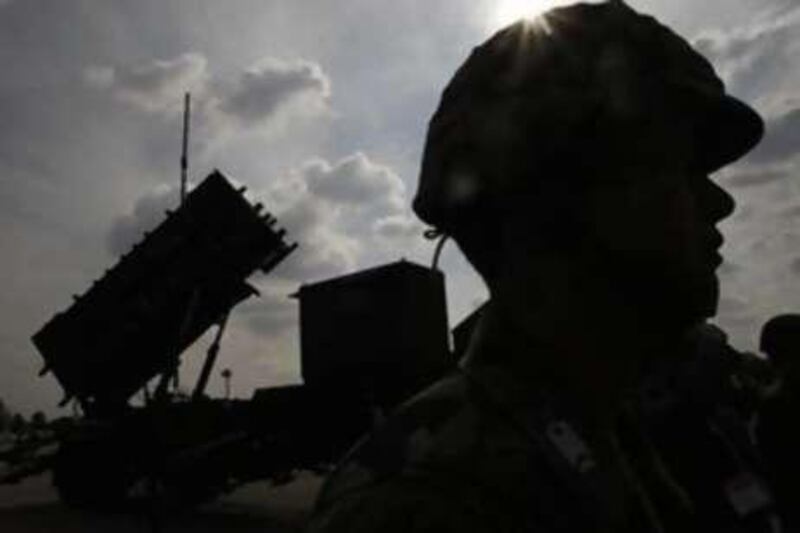Abu Dhabi // The UAE has closed a deal to become the first Arab country to buy advanced Patriot anti-missile systems. Lockheed Martin, the prime contractor of the Advanced Patriot Capability-3 (PAC-3) missile system, said yesterday it would start making the missiles next year and begin operating them in 2011. The missiles, with a range of 45km, are designed to intercept missiles and aircraft and have been deployed in the Netherlands, Germany and Japan. Dennis Cavin, a retired US general and vice president of international missile defence at Lockheed, said earlier this month that there would be a partnership between the UAE military, the US government and the US industry to train Air Force personnel to operate the systems. "The UAE will be the operators of the system once it comes here. There will not be any US industry or government; it will be Emirati Air Force from day one." Last week, Raytheon said it had signed a $3.3 billion contract (Dh12.12bn) to provide the UAE with the Patriot Guidance Enhanced Missiles system, or GEM-T, which brings advanced radar to the basic Patriot system. The two deals are part of an even larger proposal to build an defence system to shield the country from all types of threats from the air, including intercontinental ballistic missiles. It means that nearly $4 billion worth of missiles, radars, launchers and control stations will go into production. The notification included requests for 288 of Lockheed's PAC-3 missiles, and 216 GEM-T missiles. Lockheed said in a statement that it expects the deal with the UAE to generate more than US$1.8 billion in revenue. The US Congress has also approved requests to sell to the UAE the Terminal High Altitude Area Defence (THAAD) missile, which can destroy incoming missiles at altitudes of 150km. It too is made by Lockheed. An older version of the Patriot system has been operated by several Arab countries, including Saudi Arabia, Kuwait and Egypt, but the UAE is the first in the region to acquire the latest. Patriot missiles were used during the Gulf War to shoot down incoming Iraqi Scud missiles in Saudi and Israel. Their effectiveness was disputed.
Earlier this month, defence industry executives and military officials emphasised the need for a missile shield even though the air defence systems cannot fully guard against aerial attacks. "If you have a rate of interception of 80 per cent, you will get 20 per cent of the rounds which have been shot, so you decrease enormously the amount of damage," said Dr Francois Gere, the president of the French Institute for Strategic Analysis. "There will never be 100 per cent protection, 100 per cent interception. It doesn't exist in the real world and it will never exist. Everyone knows that." Dr Theodore Karasik, a senior researcher for Institute for Near East and Gulf Military Analysis, said the need to have anti-missile systems in the region stemmed from the fact that a number of Middle Eastern countries were "loaded with ballistic missiles." "The threat is real in the sense that there is enough capability [in the region] that it warrants the need for deterrence," he said. mhabboush@thenational.ae cstanton@thenational.ae






